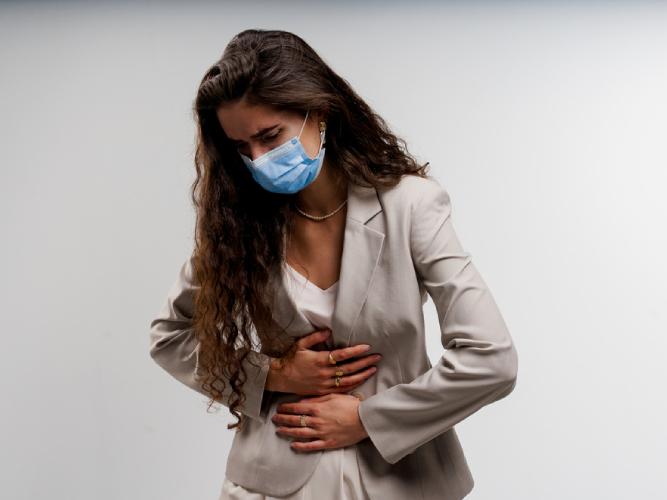COVID-19, initially considered a respiratory disease, is now recognised as a multisystem disease affecting all major organs, including the brain and gastrointestinal system. The disease caused by the novel coronavirus (SARS-CoV-2) can cause gastrointestinal symptoms such as loss of taste or smell, and blood clots in some cases. Now, cases of COVID-19 induced intestinal clots and gangrene have emerged in Mumbai, raising new concerns about the dreaded disease.
In this article, let me explain how COVID-19 can cause intestinal arterial clots, resulting in intestinal gangrene, and what you can do to reduce your risk.
COVID-induced clots and intestinal gangrene
It has been observed that patients hospitalised with severe COVID-19 infections can develop blood clots in intravenous lines and catheters, arteries, lungs and extremities, including the toes. The exact mechanism as to why some COVID-19 patients develop complications related to blood clots is unclear. But we do know that blood clots can lead to some potentially serious complications such as stroke, heart attack, pulmonary embolism, etc.
A blood clot from COVID-19 may also affect your kidneys and gastrointestinal tract. COVID-19 disease can also cause intestinal arterial clots in rare cases, resulting in a condition called acute mesenteric ischaemia (AMI). Acute mesenteric ischaemia is blocked or decreased blood flow to portions of the small intestine, which can lead to gangrene. It is a rare abdominal emergency associated with high rates of morbidity and mortality.
Gastrointestinal surgeons in the country have come across some patients where intestinal clot and COVID-19 have presented together, with acute abdominal pain as their only complaint. For instance, a recent case involving a 58-year-old man in Mumbai has come to light when a CT scan showed multiple clots in the main artery to the intestine. Intestinal gangrene from COVID-19 clots, if not treated promptly, can turn fatal. In fact, your chances of survival drop to 50 per cent if this condition is not tackled within 24 hours. In most cases, acute intestinal clots require the removal of the gangrenous part.
Gastrointestinal manifestations of COVID-19
Most studies project that around 16-33 per cent of COVID-19 patients have gastrointestinal symptoms like abdominal pain, diarrhoea, loss of appetite, nausea, vomiting, etc – which have been linked with more severe disease but often overlooked. It may be noted that in the initial stages of the pandemic, patients have presented with acute abdominal pain as their main complaint without having findings of bowel disease, but COVID-19 infection, indicating GI infection could be the first manifestation of antedating respiratory symptoms. Perhaps, the SARS-CoV-2 receptor (ACE2) is found to be highly expressed in GI epithelial cells, providing a prerequisite for infection. Also, SARS-CoV-2 has been detected in the feces of COVID-19 infected patients. These findings and features suggest that the SARS-CoV-2 can infect and replicate in the GI tract.
It’s imperative that physicians and healthcare providers are aware of the GI manifestations of SARS-COV-2 virus and conduct COVID-19 testing for patients presenting with digestive changes, particularly in those with respiratory symptoms. Similarly, treatment options for patients should be adjusted promptly when they have gastrointestinal symptoms.
What you can do to lower your risk
COVID-19 patients having gastrointestinal symptoms may be more likely to develop health complications or risks. Studies have shown that experiencing GI systems heightened the risk of developing acute respiratory distress syndrome or undergoing procedures with major health risks. However, early intervention can help prevent a major surgery or negative health complications due to an infection with COVID-19.
If you have stomach pain or any gastrointestinal symptoms, seek immediate medical help to discuss your symptoms and get the required treatment. While experts are still learning about the novel coronavirus and its effects on the human body, being aware of how often, when, and why the SARS-CoV-2 causes gastrointestinal symptoms can have significant benefits and save lives.
Authored by Dr Parmeshwara CM

